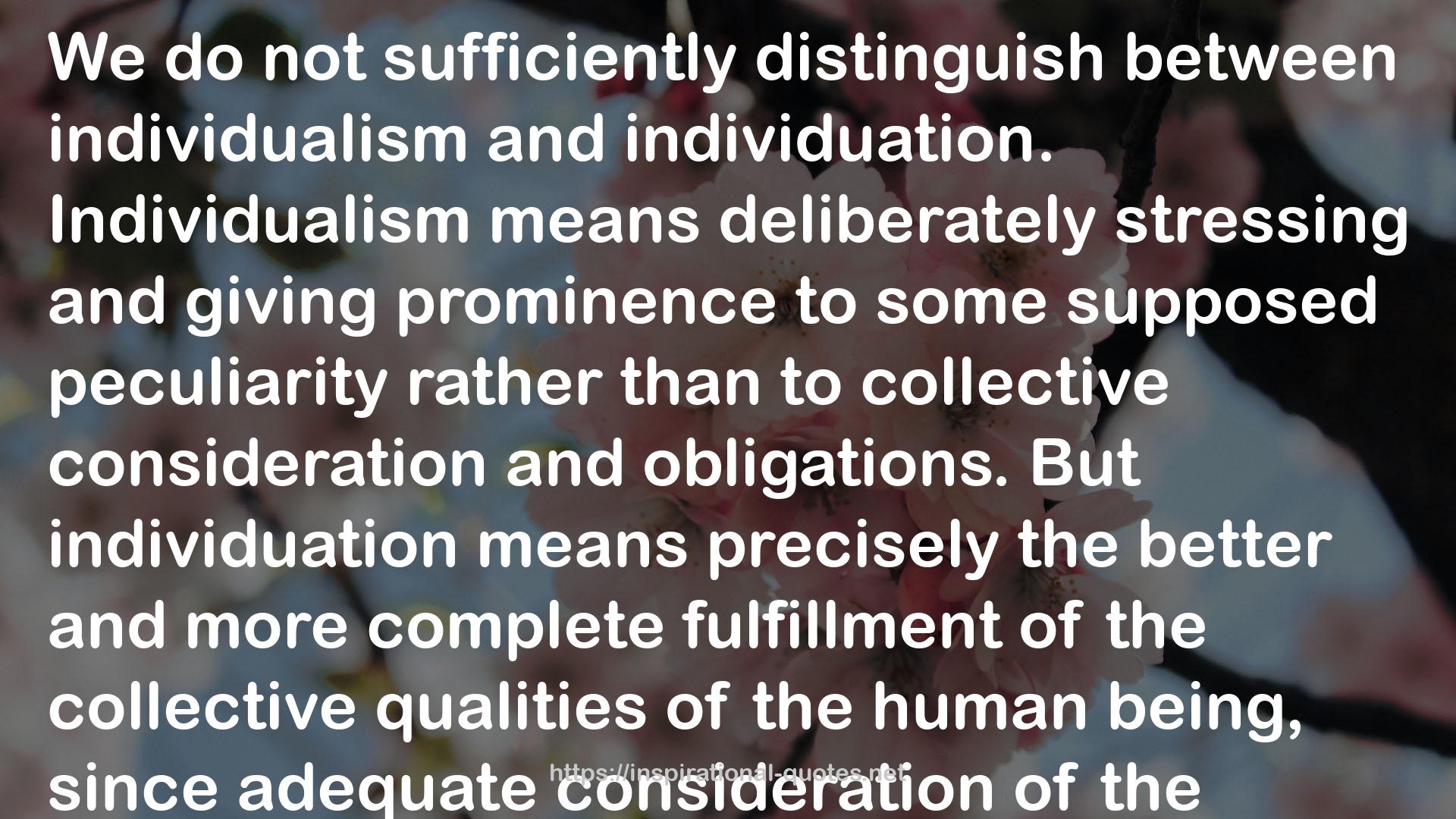" We do not sufficiently distinguish between individualism and individuation. Individualism means deliberately stressing and giving prominence to some supposed peculiarity rather than to collective consideration and obligations. But individuation means precisely the better and more complete fulfillment of the collective qualities of the human being, since adequate consideration of the peculiarity of the individual is more conducive to a better social performance than when the peculiarity is neglected or suppressed. The idiosyncrasy of an individual is not to be understood as any strangeness in his substance or in his components, but rather as a unique combination, or gradual differentiation, of functions and faculties which in themselves are universal. Every human face has a nose, two eyes, etc., but these universal factors are variable, and it is this variability which makes individual peculiarities possible. Individuation, therefore, can only mean a process of psychological development that fulfils the individual qualities given; in other words, it is a process by which a man becomes the definite, unique being he in fact is. In so doing he does not become “selfish” in the ordinary sense of the word, but is merely fulfilling the peculiarity of his nature, and this, as we have said, is vastly different from egotism or individualism. "
― C.G. Jung , Two Essays on Analytical Psychology (Collected Works 7)
